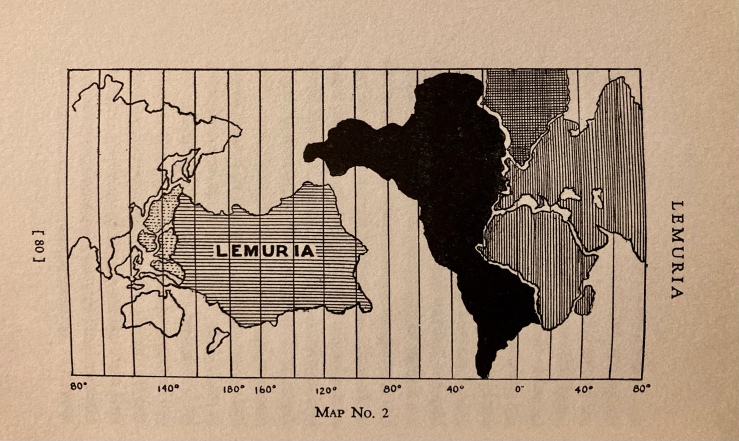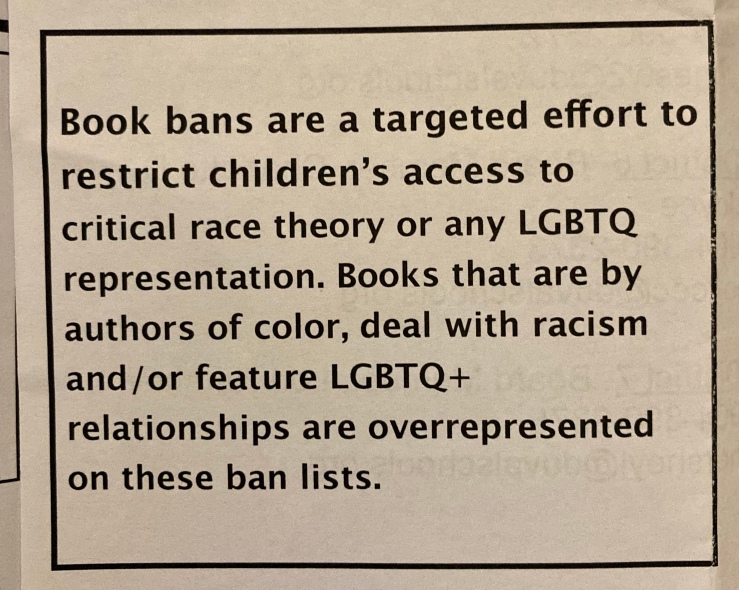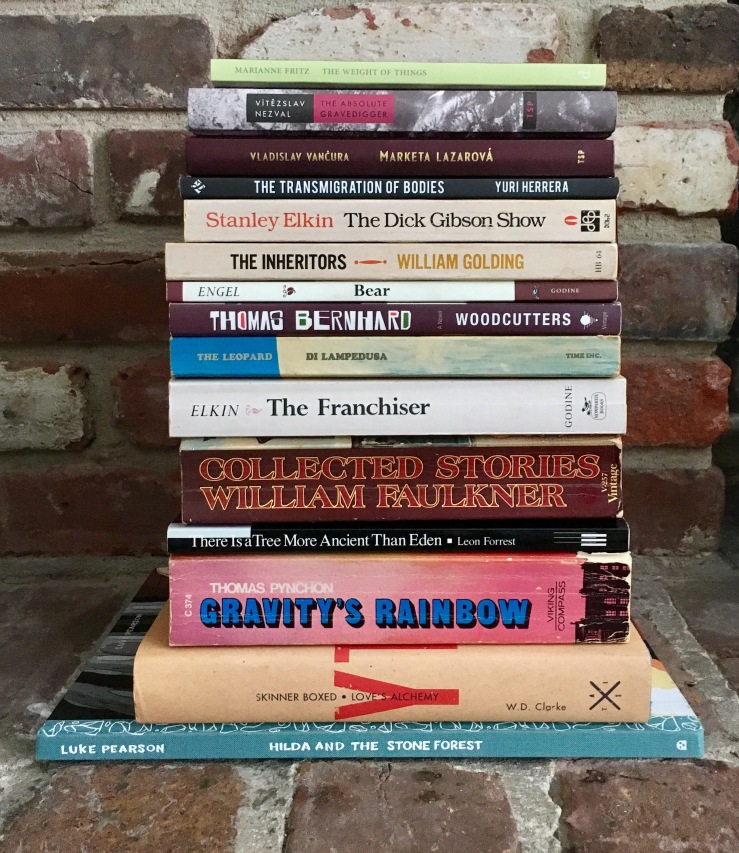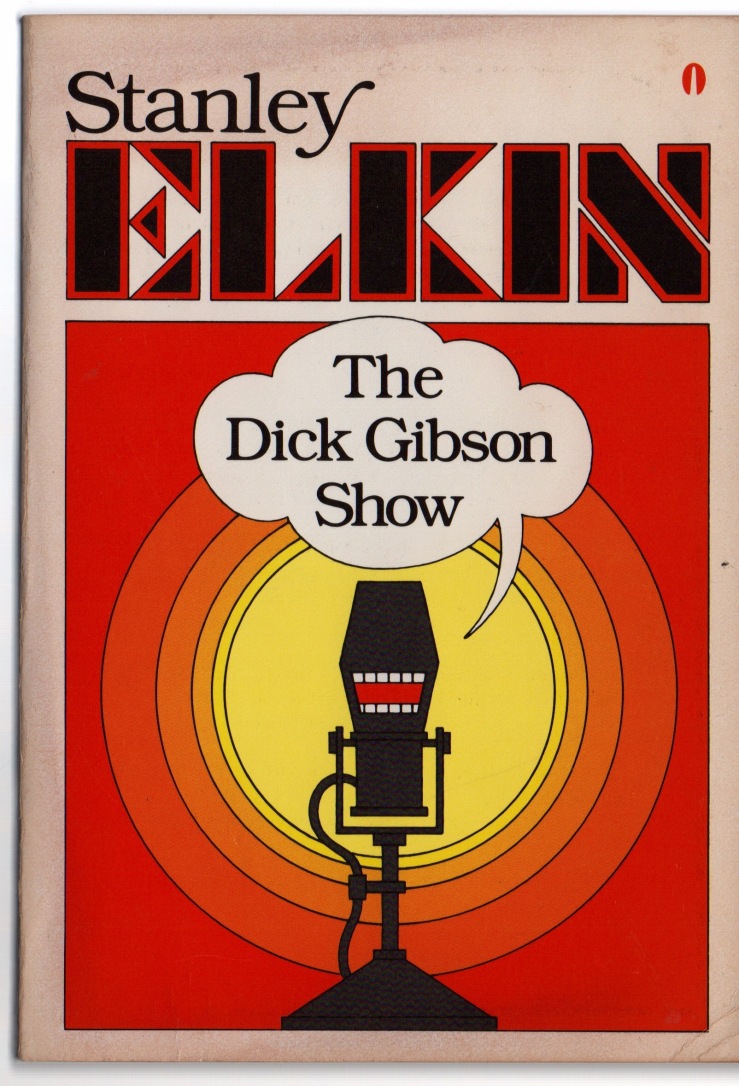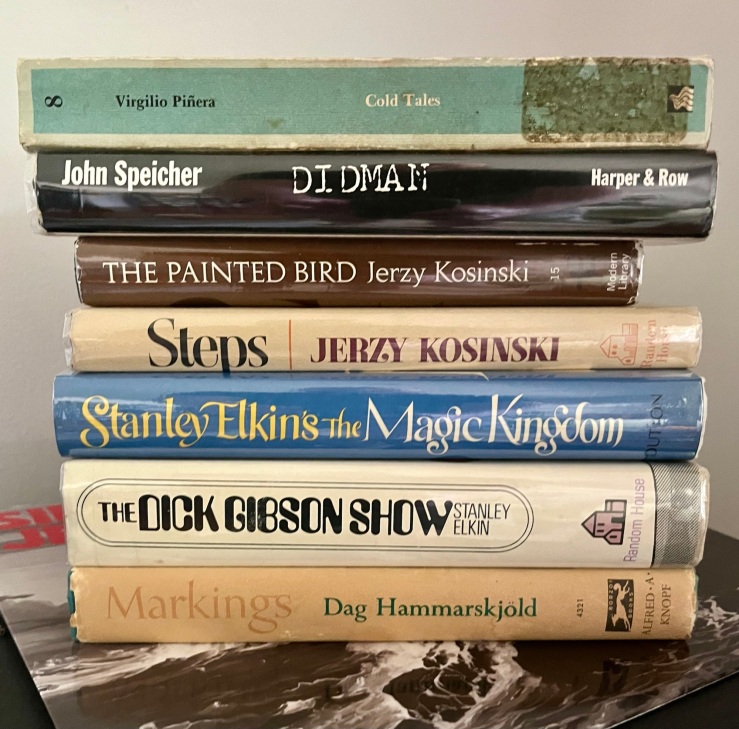
April is always a weird month for me, the last few weeks of the spring semester when I try to corral my students (and myself) toward our Grand Project of Just Damn Finishing (while also Learning and Growing as Humans), when the magic of spring break has burned off to memories, scents, traces, when the Florida weather is glorious and perfect, but for only just long enough to get out in the garden before Summer Hell commences.
It’s been a lot of cleaning and clearing out and reorganizing for me, along with meetings with students—and not as much reading as I’d like. I devoured Percival Everett’s novel James early in the month, reading it in just a few days and loved it, but failed to write The Thing I Wanted to Write about it—about Twain’s Huckleberry Finn, about lighting out for the Territory, about Leslie Fiedler, about Robert Coover’s Huck Out West. I did manage to shoehorn bits of it into meetings with an American lit class I particularly liked this semester (we’d read Huckleberry Finn back in January). I also read/am reading Max Lawton’s novel-in-progress, The Abode, and reread Max’s translation of Vladimir Sorokin’s novel Blue Lard. I’ve actually done a lot of re-rereading of Blue Lard, as my project of posting about it seems to get delayed by, like, time constraints and/or exhaustion–
–is this the part where I also rant about my eyes going to seed, my eyes of forty-five years, stalwart fellows for most of those years, but now fading? eyes now needing nose-bridge-irritating lenses to be able to read finer print at first and now not-so-fine print? eyes that will need a new set of so-called readers with a higher rate of magnification simply to comprehend the little marks on the huge copy of RSS’s A Bended Circuity I obtained way back in November of last year? my eyes that are also having a hard time with Dalkey’s reissue of Marguerite Young’s Miss Macintosh, My Darling, not included in this riff and pic of books acquired in April because it is new, a new printing? I guess that was the eye rant, so—
Oh and so anyway to the used books I picked up this month, mostly over a series of Friday-afternoon-special-treat browsings, their purchase entirely subsidized by trade credit from so, so many books I read my children when they were little and cute, books that they no longer wish to place on their shelves (ever the sentimentalist, I found space in my tiny Florida attic for a box or two for the future—and made an agreement with my son to shelve the Maurice Sendak titles in his room for at least the next few years). Those books–
A collection of Virgilio Piñera short stories translated by Mark Schaffer. I admit I was unaware of the Cuban author’s existence until I came across this edition of Cold Tales (once property of the University of Washington Libraries). The spine attracted me, the cover, bearing a reproduction of Goya’s Saturn Snacking enticed me, and I opened, reading a few of the very short stories within, knowing it’d leave with me.
I picked up John Speicher’s 1971 novel Didman because Thomas Pynchon blurbed it; haven’t opened it since.
I picked up first-edition hardbacks of books I already own and have read, books by Stanley Elkin and Jerzy Kosinski—books I already own, in a few cases, in beautiful trade paperback editions (a Vintage Contemporaries edition of Steps; Elkin novels with covers by my favorite, Janet Halverson)—do I need them? Of course not. But I have so few hobbies, reader; my herbs are in good order; my guitars hold their tunings—and I have more regrets about the first editions I let go by years ago.
Perhaps the oddest one stacked here is a first edition of Dag Hammarskjöld’s posthumous 1963 Markings (translated by Leif Sjöberg and W. H. Auden), which collects the Swedish diplomat’s diary entries from 1925 up through his death in 1961. I found it very much at random (in the literary criticism section, where I don’t think it belongs), picked it up, and kept reading. A brief excerpt:
To be “sociable” —to talk merely because convention forbids silence, to rub against one another in order to create the illusion of intimacy and contact: what an example of la condition humaine. Exhausting, naturally, like any improper use of our spiritual resources. In miniature, one of the many ways in which mankind successfully acts as its own scourge-in the hell of spiritual death.










